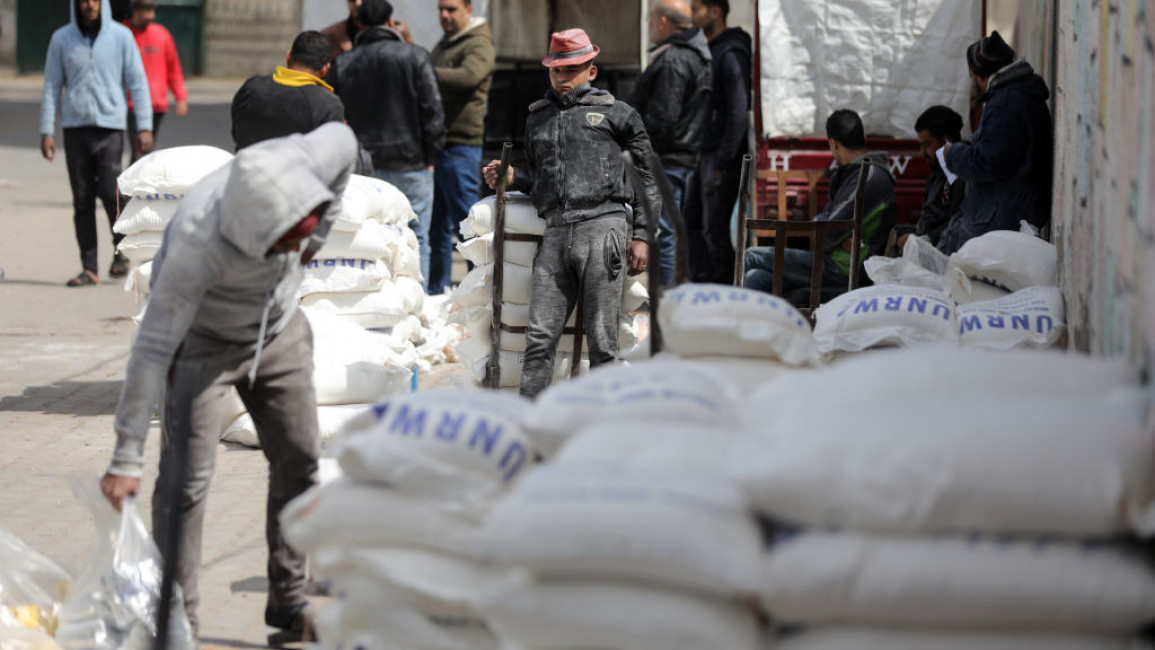Gaza's population expected to surpass 3 million by 2030: Palestinian expert
The coastal enclave is expected to experience a major demographic challenge in 2030 as the population will surpass 3 million people in the Gaza Strip, which is under a 16-year-long Israeli blockade, according to a Palestinian expert.
Loay al-Sakka, a specialist based in Gaza on economic and international relationships, said to The New Arab that "annually, the population in Gaza has increased by 100,000 thousand people as the average rate of births in Gaza per month ranges between 5,000 to 6,000."
"If Israel keeps its illegal blockade on Gaza, it means that the humanitarian situation will be catastrophic amid the lack of local investments in the fields of industry, food and pharmaceutical production, education and real estate," he added.
The continuation of the siege, the delay in the process of reconstruction and the creation of a productive environment will negatively affect all economic, social, health, and environmental aspects, he stressed.
"The daily demand for basic consumer items such as fuel, water, and food will increase too (…) we will resort to foreign markets to provide requirements, which will increase public costs and be one of the reasons to make the economy dependent," Sakka added.
He pointed out that the large increase in the population of the Gaza Strip, the decline in economic growth, the low production potential and the lack of exploitation of human resources will constitute a challenge to the national economy and create major gaps in resources, capabilities and opportunities.
The Hamas-run Interior Ministry said recently that the population of the impoverished coastal enclave has reached 2,375,259 million people by the end of 2022, and most are suffering consequences from the 'illegal' Israeli blockade. https://t.co/vDB6qoTUak
— The New Arab (@The_NewArab) January 10, 2023
"The demographic explosion will also threaten to decline people's standard of living due to increased demand for basic services such as water, food and energy. Therefore, it must be matched by a growth in resources to achieve a relative balance," he said.
To overcome such unprecedented conditions, the expert urged the Palestinian leadership to adopt a strategic plan to tackle these economic challenges.
At the beginning of 2023, the Hamas-run Interior Ministry announced that the population of the impoverished coastal enclave surpassed 2.3 million people, and most are suffering from the 'illegal' Israeli blockade.
The ministry further noted that year by year, the coastal enclave records a significant increase in the number of people even though most of the population is in poverty, mainly unemployed and food insecure, due to the Israeli blockade.
In 2007, Israel imposed a blockade on the coastal enclave after Hamas, which won the legislative elections, seized the territory from Fatah.
Moreover, the Israeli army launched five large-scale wars and dozens of short military raids against the Palestinians in Gaza, which left thousands dead and destroyed thousands of residential and industrial as well as government buildings.
About 64 per cent of the population in Gaza is in poverty, with 33 per cent of the population in extreme poverty and 57 per cent experiencing food insecurity, according to official statistics issued by the Palestinian Central Bureau of Statistics (PCBS).
In 2012, the United Nations said in its annual report that the Gaza Strip will be "unlivable" if the Israeli blockade persists. Since then, the UN repeatedly warned of the sharp deterioration in the Gaza Strip.
On various occasions, the Palestinian officials called on the international community to carry out its duties towards the civilian population in the besieged Gaza Strip, provide their basic needs and liberate them from the "largest prison in history" and put real and serious pressure on Israel to immediately end the "unjust" blockade.


![President Pezeshkian has denounced Israel's attacks on Lebanon [Getty]](/sites/default/files/styles/image_684x385/public/2173482924.jpeg?h=a5f2f23a&itok=q3evVtko)



 Follow the Middle East's top stories in English at The New Arab on Google News
Follow the Middle East's top stories in English at The New Arab on Google News


